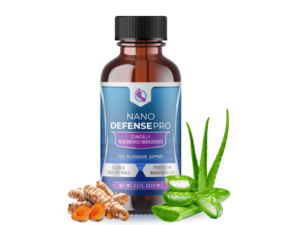A robust immune system is essential for defending your body against pathogens, viruses, and bacteria, and promoting overall health and well-being. While there’s no magic bullet for boosting immunity, adopting healthy lifestyle habits can support your body’s natural defenses and enhance immune function. In this guide, we’ll explore effective strategies for strengthening your immune system naturally.
1. Eat a Balanced Diet
Nutrient-Rich Foods: Consume a variety of fruits, vegetables, whole grains, lean proteins, and healthy fats to provide essential vitamins, minerals, antioxidants, and phytonutrients that support immune function.
Immune-Boosting Foods: Incorporate foods rich in immune-boosting nutrients, such as vitamin C (citrus fruits, bell peppers), vitamin D (fatty fish, fortified dairy products), zinc (nuts, seeds, legumes), and probiotics (yogurt, fermented foods).
2. Prioritize Sleep
Quality Sleep: Aim for 7-9 hours of quality sleep per night to support immune function, hormone regulation, and overall health. Establish a consistent sleep schedule and create a relaxing bedtime routine to promote restful sleep.
Sleep Hygiene: Practice good sleep hygiene by creating a comfortable sleep environment, limiting screen time before bed, avoiding caffeine and heavy meals close to bedtime, and managing stress and anxiety.
3. Manage Stress
Stress Reduction: Chronic stress can weaken the immune system and increase susceptibility to illness. Practice stress-reduction techniques such as mindfulness meditation, deep breathing exercises, yoga, or spending time in nature to promote relaxation and resilience.
Work-Life Balance: Prioritize self-care, set boundaries, and find healthy ways to cope with stressors in your life to maintain emotional well-being and support immune health.
4. Stay Active
Regular Exercise: Engage in regular physical activity to strengthen the immune system, improve circulation, and reduce inflammation. Aim for at least 150 minutes of moderate-intensity exercise or 75 minutes of vigorous-intensity exercise per week.
Variety of Activities: Incorporate a mix of cardiovascular exercise, strength training, and flexibility exercises into your routine to support overall health and immune function.
5. Stay Hydrated
Hydration: Drink plenty of water throughout the day to stay hydrated and support immune function. Aim for at least 8 glasses of water per day, and hydrate more if you’re exercising, in hot weather, or experiencing illness.
Limit Alcohol and Sugary Drinks: Limit intake of alcohol and sugary beverages, as they can dehydrate the body and weaken immune function.
6. Practice Good Hygiene
Handwashing: Wash your hands frequently with soap and water for at least 20 seconds, especially before eating, after using the bathroom, and after coughing or sneezing, to prevent the spread of germs.
Respiratory Etiquette: Cover your mouth and nose with a tissue or your elbow when coughing or sneezing, and avoid close contact with sick individuals to reduce the risk of infection.
7. Maintain a Healthy Weight
Healthy Weight: Strive to maintain a healthy weight through a balanced diet and regular exercise, as obesity can weaken the immune system and increase susceptibility to infections and chronic diseases.
Portion Control: Practice mindful eating, listen to your body’s hunger and fullness cues, and avoid overeating or consuming excessive calories from processed and high-fat foods.
8. Limit Exposure to Toxins
Environmental Toxins: Minimize exposure to environmental toxins, pollutants, and chemicals that can weaken the immune system and contribute to inflammation and oxidative stress.
Avoid Smoking: If you smoke, seek support to quit smoking, as tobacco smoke can impair immune function and increase the risk of respiratory infections and other health problems.
Conclusion
Boosting your immune system naturally involves adopting a holistic approach to health that encompasses nutrition, sleep, stress management, physical activity, hygiene, and healthy lifestyle habits. By prioritizing these strategies, you can support your body’s natural defenses, enhance immune function, and promote overall health and well-being.
FAQ on Boosting Immune System Naturally
Q1: Can certain supplements help boost the immune system? A1: While some supplements such as vitamin C, vitamin D, zinc, and probiotics may support immune function, it’s best to focus on obtaining nutrients from a balanced diet rather than relying solely on supplements.
Q2: Are there specific foods that can help strengthen the immune system? A2: Yes, foods rich in vitamins, minerals, antioxidants, and phytonutrients, such as fruits, vegetables, whole grains, lean proteins, nuts, seeds, and legumes, can support immune function.
Q3: How can I support my immune system during cold and flu season? A3: In addition to adopting healthy lifestyle habits, practice good hygiene, get vaccinated against the flu, and consider additional precautions such as wearing masks in crowded or high-risk environments.
Q4: Can stress weaken the immune system? A4: Yes, chronic stress can suppress immune function and increase susceptibility to infections and illnesses. It’s essential to manage stress effectively





